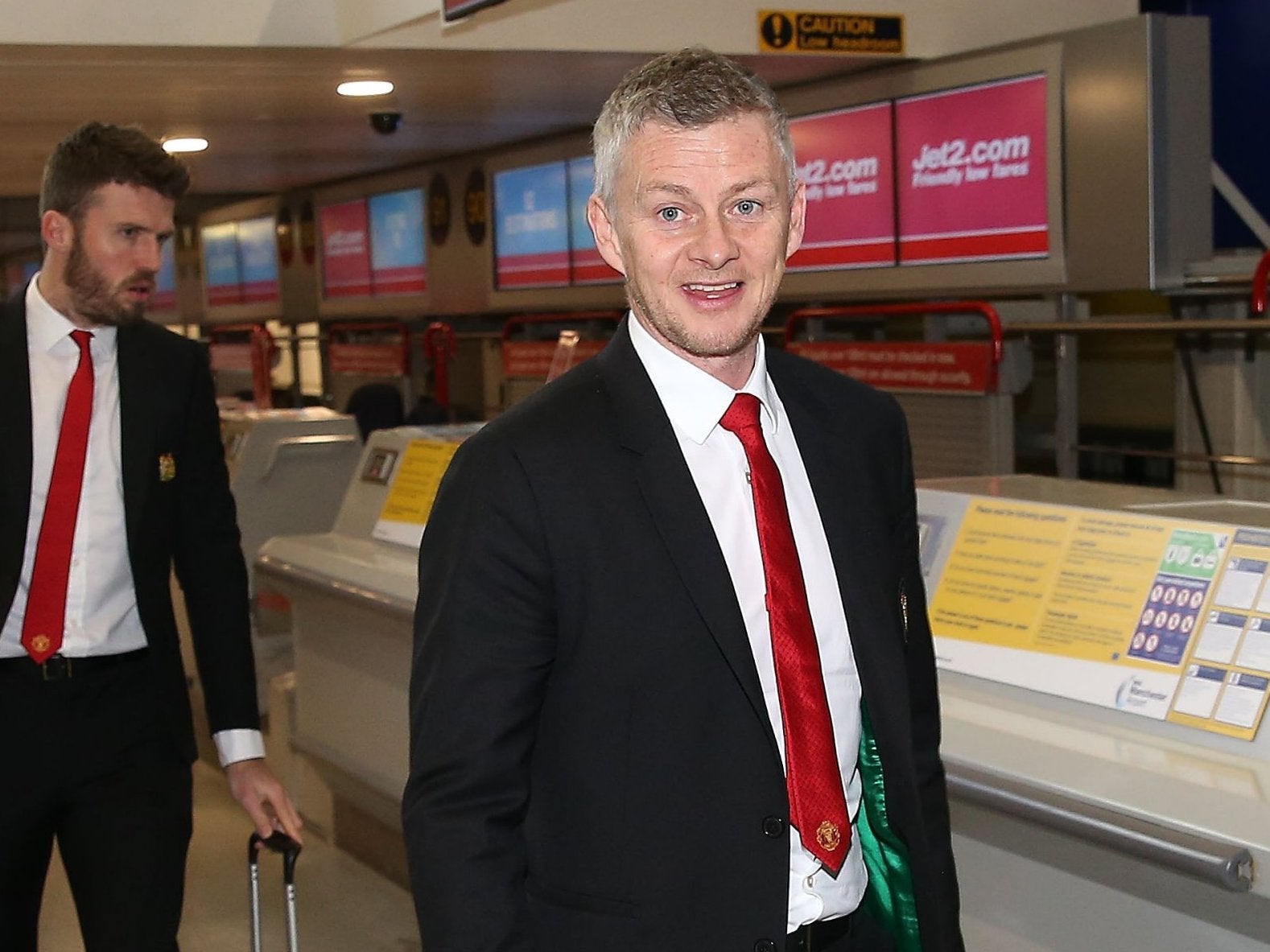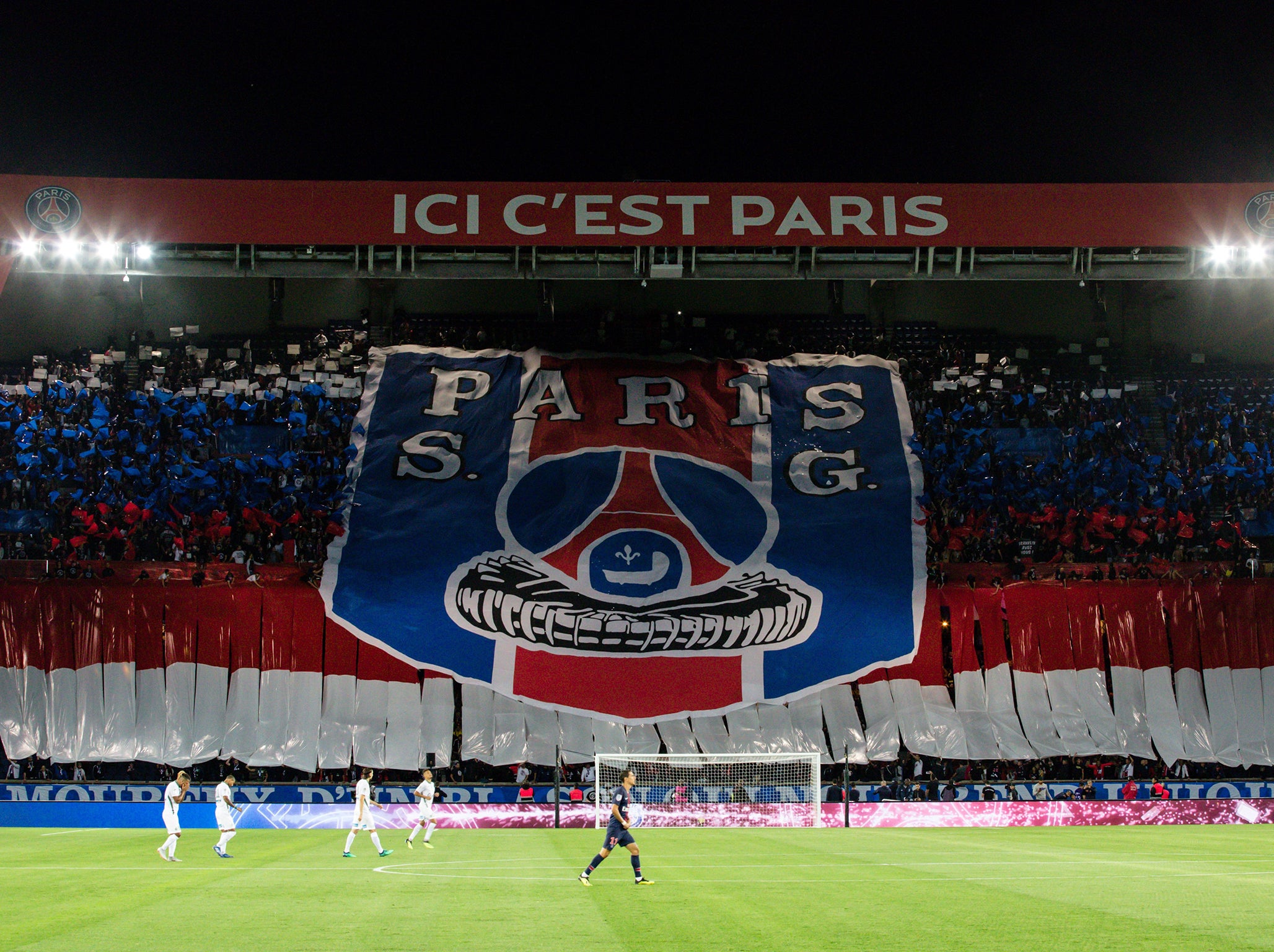PSG vs Manchester United: Ole Gunnar Solskjaer needs an unthinkable comeback - but they aren't as unthinkable as they used to be
Solskjaer needs to turn around a deficit, but the knockout stages have seen that happen plenty in recent years in the most unlikely of circumstances. The Norwegian faces the night of his managerial career

Your support helps us to tell the story
From reproductive rights to climate change to Big Tech, The Independent is on the ground when the story is developing. Whether it's investigating the financials of Elon Musk's pro-Trump PAC or producing our latest documentary, 'The A Word', which shines a light on the American women fighting for reproductive rights, we know how important it is to parse out the facts from the messaging.
At such a critical moment in US history, we need reporters on the ground. Your donation allows us to keep sending journalists to speak to both sides of the story.
The Independent is trusted by Americans across the entire political spectrum. And unlike many other quality news outlets, we choose not to lock Americans out of our reporting and analysis with paywalls. We believe quality journalism should be available to everyone, paid for by those who can afford it.
Your support makes all the difference.Ole Gunnar Solskjaer has naturally spent the last few days passionately infusing his players with the spirit of so many epic Manchester United comebacks in the history of the European Cup, but just as inspiring might be a spirit of openness that has infused the Champions League over the last two seasons.
It is genuinely like nothing we have ever seen before, and should at least offer some hope United can pull off something they’ve never managed before.
Much will be made of Paris Saint-Germain’s collapse to Barcelona in 2016-17 - in a way that will hang over every Champions League second leg where they have a lead until they actually win the trophy - but more relevant is the contagion effect the chaos of that tie seemed to have on the rest of the competition.
It is almost like when a player pulls off a spectacular strike, like a scorpion kick, only for a series of similar efforts to follow because everyone has been shown it’s now possible.
This isn’t far off what has happened with previously highly improbable Champions League comebacks.
The time since PSG’s collapse has seen Roma recover from 4-1 down against Barcelona themselves to claim a remarkable 3-0 and Monaco overturn a 5-3 at Manchester City to then win 3-1. Even huge comebacks that weren’t fully completed saw frenzied and emotionally freighted football that was scarcely imaginable for most of the modern Champions League. Real Madrid went 3-0 ahead in Turin only to suffer the stunning ignominy of Juventus doing the same at the Bernabeu, before a contentious Cristiano Ronaldo penalty saved the Spanish side. It’s similarly now forgotten that Roma came to within a goal of overturning Liverpool’s 5-2 in last season’s semi-final, winning the second leg 4-2.
Again, with the latter two, such situations shouldn’t have been imaginable. They instead came imposingly close.
Perhaps the truly important element in this is really the generally raucous nature of Champions League football in recent seasons, and how it’s so quickly evolved due to more attacking football.
Such comebacks are obviously connected to the huge escalation in goal returns over the last few seasons, to the point that first-leg leads of even two goals don’t mean as much as they used to.
They aren’t even as elusive, for one.
There have been 18 first-leg leads of two goals or more in the two years since the 2016-17 knock-outs, with three overturned, and two others going as far as key late goals to confirm qualification.
There were only 17 in the three years between 2013-14 and 2014-16 and three of those were overturned, but two were in generally lopsided ties like Manchester United coming back against Olympiakos and Porto succumbing to Bayern Munich.
Compare that to the period spanning Solskjaer’s playing career in the Champions League, between 1996 and 2007. Those 11 years saw 27 such leads, with just three overturned, and two of those famously came in the same 2003-04 season with Milan-Deportivo La Coruna and Real Madrid-Monaco.
So, put bluntly, the last two years of the Champions League have seen as many sensational comebacks as Solskjaer’s entire playing experience of the competition. European football is just nowhere near as tight as it used to be.
It also means that, whatever about beating PSG themselves, such comebacks just aren’t as “impossible” as they used to be either.

Consider the complexion of this tie, against that contrast.
Before even trying to figure out how to win a game against a side as good as PSG, such 2-0 leads would have been layered by the knowledge that they just don’t tend to be turned over at this level, doubling the scale of the challenge. It is a history that still conditions much of the thinking now. But it shouldn’t.
Leads like this just aren’t as rarefied, or consequently as ruinous, as they used to be.
Part of it is also about, well, just completing part of the task.
If beating PSG by two goals at Parc des Princes is daunting, scoring one is not. It’s just one moment in a game, in a much more open era of attacking football.
And this is the key: once a team has that single goal, it’s no longer a daunting comeback. It’s just another step to be taken in the game, at a stage of football history where so many more goals are being scored. The tie suddenly comes alive. The complexion has transformed.

That sense of excitement on one side, of concern on the other, is often enough to completely re-energise a tie.
You could feel it when Roma got that second against Barcelona last season and, perhaps much more relevantly to United, when Mario Mandzukic made it 2-0 to Juventus at the Bernabeu.
They were no longer in the profoundly difficult process of trying to overturn a 3-0 lead against an imposing giant. They instead only required a goal to bring it level, in a way that happens in so many routine games.
This is something Solskjaer will be playing on.
He of course has the greater challenge of trying to work out a team for the PSG match given United’s many injuries. That has occupied much of the thinking around the squad.
The scale of the deficit, however, should not. At least not in the way it used to.
Such comebacks now come around so much more often.
Join our commenting forum
Join thought-provoking conversations, follow other Independent readers and see their replies
Comments